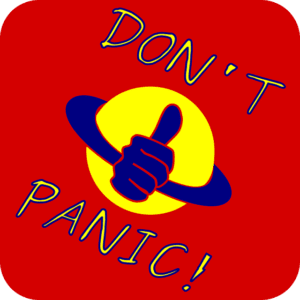How To Deal With The Writer’s Block ? – 10 Tips To Overcome It
How to deal with the writer’s block is a topic that I have been wanting to tackle since quite a long time. Many of my readers and team members have been asking me on regular basis, so, today …
Today, I will talk to you about a condition that affects all writers. Content writers, columnists, book writers, etc. alike, at least once in their life: the crippling writer’s block!
There are several forms of writer’s block. I’d like to talk to you about them and share my tips and tricks to get around them.
In addition, this is a subject that particularly affects me right now, I thought it was a good idea to talk about it.
What exactly is a writer’s block?
I think everyone has more or less their own definition of the writer’s block, so to be sure that we are all talking about the same thing, I’d like to give you my definition.
For me, a writer’s block is not necessarily the complete inability to write, but rather the inability to write with ease and pleasure.
There is a blockage when the writing becomes a kind of fight against oneself, when one has the impression to force oneself to be able to find the words, and, especially, when one does not feel any more pleasure to write.
In the same way, one can experience a lack of inspiration for writing fiction, but not for that of non-fiction, and vice versa.
For example: I may be in the middle of a block with an eBook, but not for blog posts. It has happened to me that it is the opposite.
The different kinds of writer’s block

Overcome the fear of the end!
It is true that when one thinks of a writer who cannot write anymore, one thinks, most often, of the syndrome of the white page (or Leucosélophobia, a French word for the fear of everything). This is actually the most common block, but also the most complex, to the extent that it deserves an article all by itself.
As a reminder, the white page syndrome is a lack of inspiration or an overflow that prevents focusing on a single idea.
But, in reality, there are other blockages than the white page syndrome:
The anguish of the ugly page:
- it is the fear of writing garbage,
- that you have the impression that the words are hollow and that the style is wobbly,
- it is this impression that what you have written does not look like anything,
- in short that what you write is like nothing.
The fear of the end:
- it happens that when one reaches the end of a novel, one is caught with a kind of fear that prevents from finishing it. This fear may be due to the fact that we do not want to let go of our characters and / or our universe,
- that we are afraid of what will follow (the replay, the return of beta readers, corrections, the obstacle course to find a publisher …) or simply …
- the fear of saying that once this book is finished, it will start from scratch with a new one.
The cognitive load is too important:
- it is, basically, the whole of the tasks; not only those related to the writing, which one must accomplish and which occupies our thoughts permanently. The more important and disorganized it is, the more it prevents us from concentrating.
Concerns:
- there is nothing to do. When our daily lives become a source of more or less serious worries, our mind becomes monopolized by these problems; and we can no longer concentrate properly, to produce a job worthy of the name.
Let’s take a break, and in the main time …
That said, let us begin …
Okay, let’s continue now …
The fed up:
- It may make some smile, but yes, it happens that we are fed up, even if writing is our passion. When you consider that writing is your job, then, yes. It happens, as in any job, to want to take a vacation.
The pressure:
- It can happen that some people live the interest of others for their writings as a stressful pressure, especially if one is in total blockage. Sometimes, too, some people have an almost oppressive interest in your writing and others urge you to finish your writing, be it a blog post, a magazine article, a book, etc. (it can be a publisher, your fans, your family …).
But the pressure can be quite different: someone can try to force you to stop writing. From then on, writing becomes a sort of struggle against the current. And let’s not forget the social pressure that weighs on all creators as a rule. It is not always easy to be a writer and take it in the open.
The fear of disappointment:
- We may be afraid to disappoint our family, friends, our publisher, fans, newsletter subscribers, but we can also disappoint ourselves. The fear of disappointment (or failure). Perhaps the worst because it is the most damaging, from my point of view anyway. It is the one that cannot be dismissed by rest or reasoning (because the affected subject will feed it in a loop with some yes, but, what if …).
The physical environment:
- Because it is easier to write while sitting on your couch than paragliding. Writers are often attached to their rituals and habits. Changing environment (like going on vacation, moving or changing our writing schedule) can be a source of blockage because we cannot recreate our bubble.
Finally …
It is clear that this list is certainly not exhaustive and that there are probably other types of writer’s block, but these are the ones I managed to identify.
Now, let’s see how to deal with the writer’s block
After going through the possible kinds of writer’s blocks, which you might feel as being somehow boring, but thanks for reading that far, let’s get to the reason why you came to this website in the first place.
So here are the top 10 tips that I have used to help me with my blockage early on in my blogging career. Test them in the same order and see how it works for you. Then, be nice, share your results (positive or negative) in the comments area below this post.
Tip 1: Recognize that you have a blockage

10 tips to overcome the writer’s block!
This is perhaps the most difficult step: to admit that you have a problem.
It is quite common to deny, voluntarily or not, that we cannot write easily, on the one hand because of the famous pressures that come from all sides and, on the other hand, the shame that we could experience.
The time we will take to understand that we are blocked is variable: for some, years, others a few hours.
In my case, I took two months to understand. For two to three months, I battled and the writing became really painful. Until the day I landed in front of my computer and nothing came out.
There, I understood that it was not because of the subject that I wanted to write about. Which was a little bit more difficult to develop than the others (I was right in the middle of a chapter which I did not really prepare). But that I did indeed have a blockage.
Tip 2: Identify the cause of the block
As we have just seen, there are so many factors that can prevent writing, that identifying them is not always easy.
To achieve this, I proceed as a doctor who diagnoses a disease (for a few minutes / hours / days, I take myself for Dr. House): I analyze my symptoms, my subject and my environment.
I could summarize this in a few questions:
- When I start on my keyboard, do I want to write?
- What happens to me when I start writing?
- What are my emotions at this moment?
- Do I have a more or less clear idea of what I want to write?
- Do I still have faith in my topic?
- Can I concentrate properly? To ignore the rest of my life during writing?
- Am I in an environment that suits me? (In terms of position, noise, calm, serenity, comfort, concentration …)
- Have I followed all my rituals? (It is well known that in order to connect with the subject of what you plan to write about; you have to disconnect from your environment).
- How was the writing?
- How is my life going now?
- Am I worried?
In general, after answering these questions, I get to know if I am in the middle of a blockage (because sometimes it’s just a slouch), and hopefully also what blockage I’m suffering from.
Tip 3: Take a break
When one is in the middle of a block, in general, it is useless to persevere. Better to take a break and cool the mind.
It can also be an opportunity to solve other problems that concern you or tasks that fulfill your cognitive load.
To take a break, without guilt and without worrying care about what other people will say, it is to back off to better jump.
Tip 4: Read
Oh yes ! Reading is often a great source of motivation and inspiration, and also entertainment.
Reading helps to clear the mind and to escape, to think of something else. But also to reconnect with writing: for me, reading reminds me how much I love to tell stories.
However, be careful not to fall into the other side of the fence, the comparison that demotivates us because we say we will never write as well. In this case, either read a book that you hate or not at all in the genre you are writing, either drop the reading and watch a good TV series.
Tip 5: Write something else
I have often heard that “a job is based on another job.”
Also, when you have a blockage, it may be beneficial to leave your piece of writing aside to write something else, preferably something short and different (such as a short story or an advert).
Tip 6: Day dream
“What no wife of a writer can ever understand, no matter if she lives with him for twenty years, is that a writer is working when he’s staring out the window.” – Burton Rascoe
I really like this quote from Burton Rascoe because it illustrates perfectly the need of writers for those moments when they let their mind to wander.
To let one’s mind wander, without restraint or constraint, allows one to link thoughts until one has an idea that can be THE IDEA. This is the kind of thing you can do as soon as you are alone; in the shower; on the toilet; in a bath; crocheting / knitting on your couch; on public transport …
When you suffer from a lack of inspiration or motivation, this is the best way to reconnect with your world, to have new ideas and to find the desire to write.
Tip 7: Change your habits
Sometimes a change of scenery can only be beneficial. It’s not a matter of having to relocate or change country, but sometimes just changing rooms or changing the layout of your office. To look out the window can be beneficial for your inspiration and / or concentration. Going to a coffee shop can also be a good idea.
You can also change your writing times, drinks, nibbles, music, writing support (switching from computer to paper or vice versa), etc.
Tip 8: Take stock

Take stock of your progress!
Sometimes we are stuck because we do not know where we are. Your blog post or article might have deviated somehow from the plan. We do not really remember the plan, and started to have new ideas …
In these cases, take the time to take stock of the topics you wanted to cover, break them down into more manageable ideas, etc., is the best way to get back on track with your imagination and get off to a good restart.
Storing your notes can also be a great way to clarify things: Sorting and storing is as good for filing cabinets as it is for the mind!
Tip 9: Confronting others
Talking to others about a problem that affects us is a way of making it real (see the first tip). Also it is a way of helping oneself. Exposing things aloud (or in writing) to someone else forces us to put words on the problem; and thus make it clearer.
When you keep everything for yourself, the problem is like a big ball of knots whose importance is difficult to estimate. As soon as we introduce it to others, we are forced to unravel this ball and it is there. Very often, that way, we realize that the problem is not so insurmountable as it appeared to be.
In the case of a block due to the fear of disappointment, confronting your writings with one or more readers can also be a reassuring solution provided that these people are caring and honest with you. It is not a question of presenting your text to a person who will incense or demolish it without arguments, but to someone who will highlight your strengths, your weak points and, above all, who will encourage you.
Tip 10: Write
And yes ! We have to get back to writing at some point. When you feel that the urge begins to show up again, go for it!
But, unless you have a devouring urge, do not start with a long writing session, or even a writing challenge. Go on something that is short to start with; and that you are sure to be able to complete with ease.
The idea is to write every day for a week, and to increase your writing sessions every day:
- start on Monday with 10 minutes,
- Tuesday 15 minutes,
- Wednesday 20 minutes,
- Thursday 25 minutes,
- Friday 30 minutes,
- Saturday 45 minutes
- and Sunday 1 hour.
So here are the tips I personally use, or used. I hope that they will help you if one day you need them.
You might also like read the below articles that I have selected for you:
- How To Find Duplicate Content On Your Website
- Tips For Creating Quality Content
- How To Write Engaging Content – Top 10 Tips
And remember that you can subscribe to my newsletter so that you will be instantly notified by email when a new article is made available for you to read. Just follow this link ~~> Subscribe to Newsletter!
Thanks for reading

John
Hopefully this article showed how to deal with the writer’s block. Can be quite simple right? If you have any other tips in this particular field, my readers and myself would like to hear from you. And, should you have any problems and would like to find a solution, please make use of the box below and someone and/or myself. I will respond typically within 24 to 48 hours. If you enjoyed reading this article please share it socially and post your appreciation in the comments area below, I will highly appreciate it!
I am a Premium Member at Wealthy Affiliate, where I learned how to share my passions and successes. You are most welcome to join my team and learn how to become successful in business and retire early. I will personally mentor you for FREE. It is 100% FREE to join, learn and earn! Click the button below and I’ll see you on the other side.
Easy to Retire – Copyright © since 2017 to date!



For someone that writes daily or that is the goal anyways LOL Your article on writers block is definitely a keeper!!!
You explained the different types of blocks in a way that I could relate,and some of them I have had.
Your tips are also a source of inspiration,some I have tried and have had success with. My favorite is reading… this almost always gives me the inspiration to try again.
Thanks very much for visiting my website and for taking the time to comment on my “10 Tips To Overcome The Writer’s Block” article Cathy. I am glad that it brought you some inspiration. Reading is definitely a great source of ideas for writing blog contents.
Just in case you have not done so yet, I recommend that you join my mailing list so that you will be informed as soon as a new article is being posted. The signup form is located on the sidebar on the right of every page.
You can also signup for my free Internet Marketing Training here: FREE Internet Marketing Course
I wish you the very best.
John
Wow, amazing post! Did not know about writer’s block until now! Now that I have read about it, I know that I have experienced it myself and will now be able to effectively use the techniques presented here on how to do battle against it or simply go around it!
Very concise article! Very useful and informative!
Thanks for the share!
Joe Joson
Thanks very much for visiting my website Joe, and for taking the time to post a comment on my “How To Deal With The Writer’s Block ? – 10 Tips To Overcome It” article.
Unfortunately, the writer’s block hits us all, some bloggers or writers more than others. I know of some very famous writers who are still suffering from it even though they have already published a large number of paperbacks.
According to what you are saying, you have not been affected by it too badly, otherwise you would have known about it, trust me.
Anyway, I wish you the very best and I look forward to seeing you again on this site soon.
John
Great post! Did not know anything about writer’s block until I read this article! Now I know I have experienced it myself and will now know how to deal with it!
This article will definitely help other writers who may not be aware that such a thing existed!
Thanks for the share!
Joe Joson
Thanks very much for visiting my website and for taking the time to comment on my “How To Deal With The Writer’s Block ? – 10 Tips To Overcome It” article Joe. I am glad that it struck a chord as far as you are concerned and that you have come out of it yourself.
If you know of anyone with this problem, and I know that they are many, some even give up writing blog posts, or even writing a book that could have become a bestseller, make sure to share this article with them. You will do them a huge favor Joe.
I have recently written an article that I believe will be of interest to you. Here it is:
How To Find Duplicate Content On Your Website
Enjoy it and let me know what you think.
Best wishes,
John
Hi John,
It’s great that I came across your article while browsing. I currently have writers block, hence, why I am in this section of WA!
You did very thorough research on your article; I found it very informative. I did find your article a bit lengthy. The reason I say this is that I read through it patiently but a person searching for this topic feels frustrated and want a quick fix. It’s in our nature to want a quick solution.
I would recommend you filter through your work and summarize it into fewer words.
You mentioned writing fiction and non-fiction as well as an eBook; I’d like to know more on how you started writing content outside of your site to use as an additional income?
Thanks so much for commenting on my “How To Deal With The Writer’s Block ? – 10 Tips To Overcome It” and I am quite sure that you will find a solution to your writer’s block Ian.
As for the length of this article, which is just about 2,450 words and considered “excellent for SEO”, you might like to refer to an article I have written a little while ago (careful, it is also about the same size): What Is The Best Length For A Blog Post?, let me know what you think.
To cut it short, a good friend of mine, Loes, gave me this rule of thumb when I asked her the same question:
Article recommended size:
300 words – you are in the wrong business
500 words – a start
750 words – getting better
1000 words – acceptable
1500 words – good
2000 words – your aim
2500 words – excellent
3000 words – awesome
3500 words or more – write a book… that’s what I did, many times and they are available on Amazon.
Hope this helps and let me know if you have any questions Ian.
Best wishes,
John
My writer’s block is always at the beginning of the article. Coming up with a good introduction and the need to embed the keyword somewhere pressures my thought. Believe it or not, sometimes I would spent up to 30 minutes just to figure out the first paragraph.
After that, everything is easy flow most of the time. However, I still struggle to write on a daily basis because I still have a full time job and it’s tiring to write after work. I like your idea on the daily short writing sessions. Maybe I’ll give that a try and see how it goes.
Thanks for sharing your writer’s block experience Cathy. Your sort of block is very common. Many, if not most writers find it most difficult to get going, and once the “engine is warmed up”, it seems to come out naturally. Sometimes, ideas are flowing out faster than one can write. So don’t worry Cathy, it gets even better with practice.
Of course, it is not possible for everybody to have all day free to write their blog posts, but believe me, that doesn’t mean that your website or blog will suffer. What’s most important is the quality of the content you are sharing. For that, I can suggest an article that I have written that might help you: Tips For Creating Quality Content
Let me know what you think.
John
Good tips John. Identifying the cause helps me dissolve the block. Fear always rears its ugly head in some way, shape or form. Face it, and the block vanishes quickly. Tweeting this.
Ryan
Thanks very much for your comment Ryan. I do like your blog, well done! Keep on the good work, and thanks for Tweeting my tutorial, it might help a few other bloggers.
Best wishes,
John